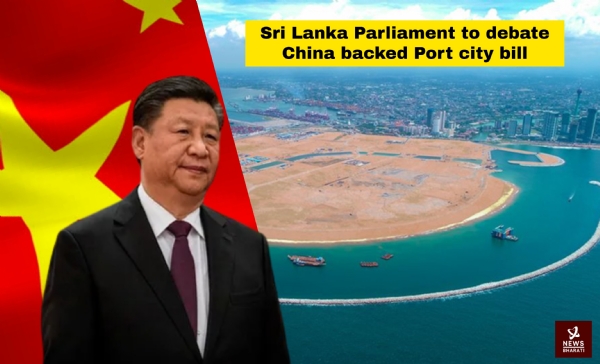Sri Lanka has officially informed a state enterprise of China that reclaimed Colombo Port City to adhere to language policy of the country following controversy over a name board, though it was not a matter for concern Education Minister G L Peiris said.
“We have officially informed them,” Minister Peiris told reporters. “That is not a matter which is cause for concern. That has been corrected.
“That has been brought to the notice of the relevant people and adherence to the language policy of the country will be mandatory.”
The Port City firm ran into a social media storm after a picture of a sign board with English, Chinese and Sinhala started circulating.
The Port City said the sign had been erected by a contractor.
“Port City Colombo is still under construction and all signboards erected by the contractor within the site re for the benefit of site employees or authorised visitor,” the firm said in a statement.
“Although construction sites do not require to have temporary signboards in all official languages, as the majority of employees are locals, the contractor had use Sinhala for the signboards while also using English and Chinese, as there are a considerable number of foreign workers also at the site.”
The Port City firm said it requested the contractor to remove the signboards and “follow standard signboards within the site.”
“There has to be compulsory compliance with the language policy of this country,” Minister Peiris said.
“The language policy, Sinhala, Tamil and English. There is going to be no departure from that.
“Port City Project any other project will obviously have to comply.”
The comments came shortly after Sri Lanka’s Attorney General unveiled plaque involving a Chinese funded project which had also replaced Tamil with Chinese.
The AG’s office told reporters that he was unaware of the lack of Tamil until it was unveiled and was taking steps to add Tamil.
Before chauvinism given legal effect through nationalist legislation in a law-making assembly inherited from the British, such as through the ‘Sinhala only law’, Sri Lanka’s ancient rulers had used Tamil in many surviving stone inscriptions.


